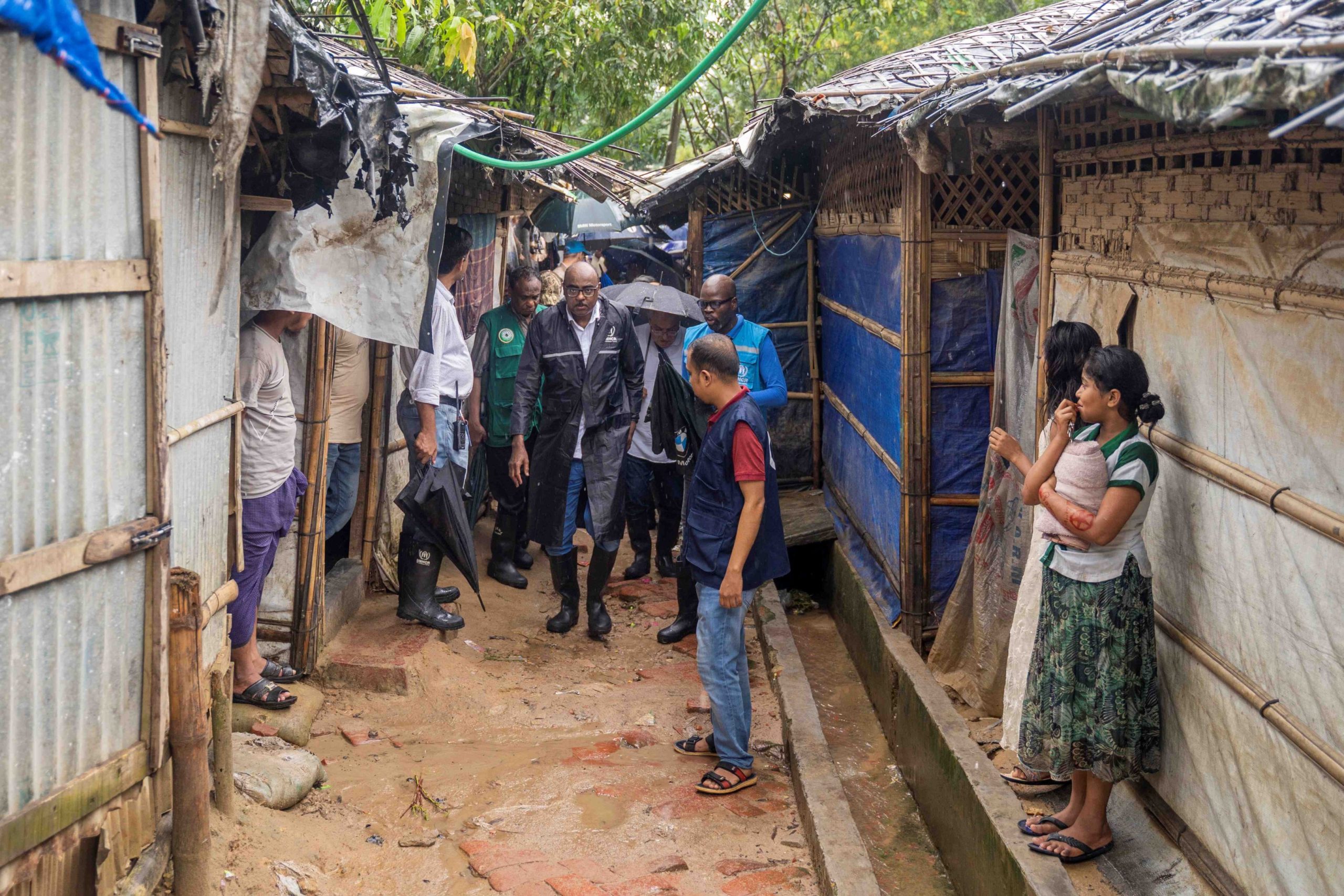In March, the UN had appealed for $876 million to support Rohingya refugees in Cox’s Bazar, Bhasan Char, and Bangladeshi host communities.
The Qatar Fund for Development (QFFD) embarked on a “solidarity visit” to Cox’s Bazar in Bangladesh on Thursday, joining international organisations assessing the conditions for Rohingya refugees at the camp.
“The visit shed light on the worsening humanitarian situation and compounded needs of Rohingya refugees and their hosts in the district of Cox’s Bazar in Bangladesh as the situation approaches the six-year mark,” the United Nations High Commissioner for Refugees (UNHCR) said in its statement on Monday.
The UNHCR co-led the visit together with the UN Refugee Agency, gathering a number of humanitarian entities that also included the Organization of Islamic Cooperation (OIC), the Islamic Solidarity Fund (ISF), the Kuwait Fund for Arab Economic Development (KFAED) and Kuwait’s Zakat House.
The delegations covered several UNHCR-backed programmes while assessing the “acute needs” of the hundreds of thousands of refugees and their hosts. The humanitarian organisations also explored opportunities to empower communities at Cox’s Bazar in an attempt to reduce their heavy reliance on aid.
The visit also came at a critical period for the refugees as they face heavy monsoon rains that have damaged fragile shelters and exacerbated their struggles.
“The delegation witnessed firsthand UNHCR’s disaster risk management and preparedness activities aimed at mitigating climate-related risks and averting a further deterioration of living conditions caused by adverse weather,” the UNHCR added.
Rohingya refugees have been fleeing violence and attacks since 2017 as part of a deadly crackdown on the Muslim population in Myanmar. The UN previously slammed the attacks as a “textbook example of ethnic cleansing”.
Almost a million people have since taken refuge in Bangladesh with generations born in camps. According to UN figures, almost a million Rohingya live in camps in Cox’s Bazar.
The UNHCR’s representative in Bangladesh, Johannes van der Klaauw, has also warned of a “severe funding crisis” in the Rohingya response plan following cuts in food assistance.
“There is an urgent need to invest in collective efforts to allow Rohingya to become self-reliant as they cannot, and do not wish to, remain dependent on humanitarian aid,” the UNHCR official said.
After concluding the visit to Bangladesh, the OIC’s Assistant Secretary General for Humanitarian Affairs, Tariq Ali Bakheet, urged the international community to “generously support” Dhaka’s government in responding to the need of refugees.
“The diplomatic track must advance hand in hand with humanitarian efforts to deal with the root causes of the problem and reach a permanent solution to the Rohingya crisis in accordance with the OIC’s relevant resolutions” he said.
In March, the UN appealed for $876 million to support Rohingya refugees in Cox’s Bazar, Bhasan Char, and Bangladeshi host communities.
“As of 6 August, the 2023 Joint Response Plan was only 28% funded, forcing agencies to focus only on the most critical needs,” the UNHCR said.
Meanwhile, Qatar has continued to send aid to Rohingya refugees in collaboration with international agencies. In 2018, Doha donated more than $8 million in aid to the UNHCR.
In May, Qatar Charity announced plans to rebuild 326 homes for Rohingya refugees in the Balukhali camp following the tragic fires that destroyed the shelter of thousands in March.
The fires displaced an estimated 12,000 refugees while destroying more than 2,000 homes, per UN figures.







